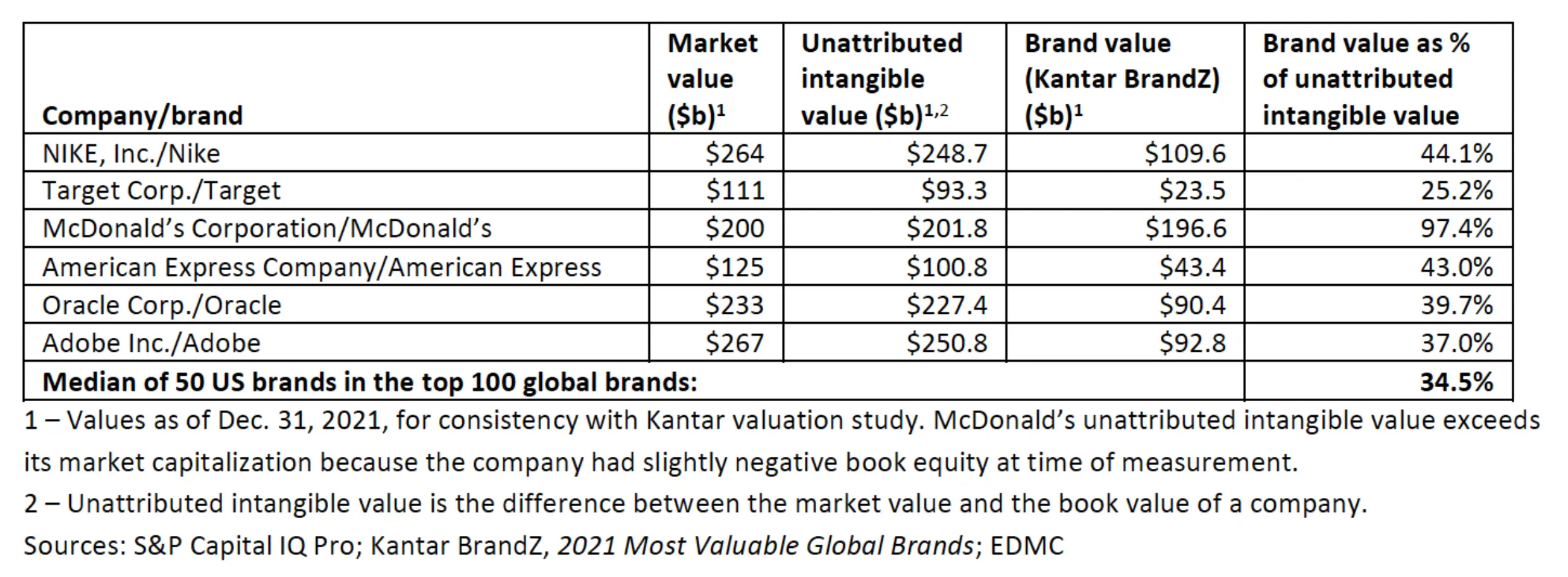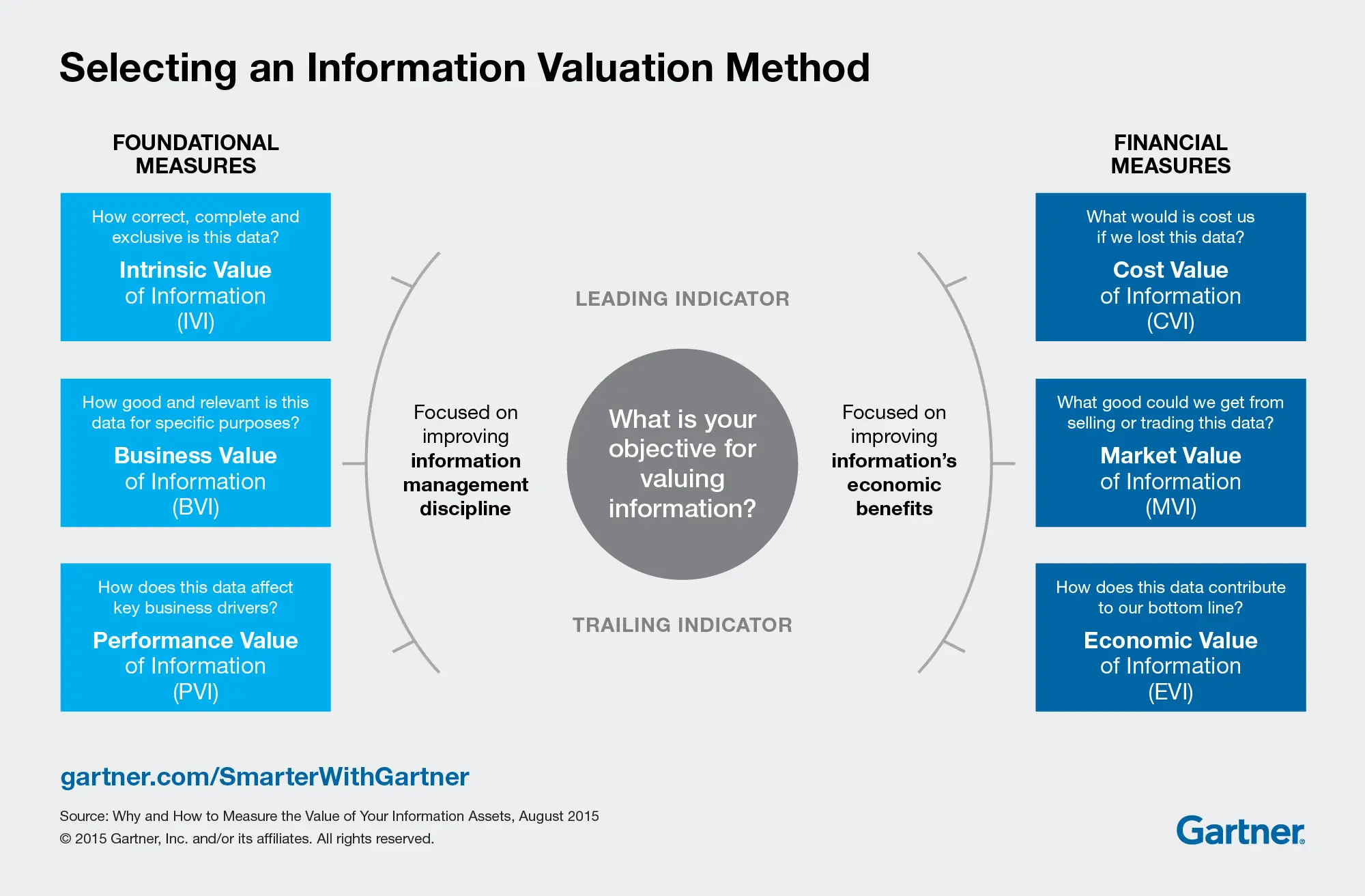Nicole offers a proven track record of applying Data Strategy and related disciplines to solve clients' most pressing challenges. She has worked as a Data Scientist and Project Manager for federal and commercial consulting teams. Her business experience includes natural language processing, cloud computing, statistical testing, pricing analysis, ETL processes, and web and application development.
Don't miss our Common Gotchas on the CDMP Exam training on Fri, Dec 12 from 11am - 1pm ET. Includes 2 weeks of free access to CDMP Crash Course.
Strategies for a Data Valuation Assessment
A variety of thought experiments to quantify the value of data and data-related work.
Author: Nicole Janeway | Post Date: Jul 12, 2024 | Last Update: Aug 12, 2024 | Related Posts
Quantifying the value of data can help an organization to appropriately prioritize data assets, communicate return on investment to stakeholders, and garner support for data-related work. However, Data Valuation can be a challenging initiative. It is not straightforward to apply traditional valuation approaches to information assets.

In fact, there is no standard method for calculating the value of data. International Accounting Standard 38 states that any electronic data cannot be capitalized on an auditable financial statement.
However, undertaking a Data Valuation initiative can provide an organization with a powerful lens to better understand the costs and benefits associated with information assets.
Contents
According to researchers Mike Fleckenstein, Ali Obaidi, and Nektaria Tryfona writing for Harvard Data Science Review, Data Valuation approaches can be grouped into three categories. Market-based methods are focused on the impact of data on the income, costs, or stock value of a company. Economic methods assess the value of data in terms of spurring economic development and promoting the public good. Dimensional methods take into account intrinsic characteristics of the data to inform the estimate of value.
These three approaches can be used in combination to create thought experiments that provide insight into the value of data.
Market-based methods
Market-based methods are focused on the impact of data on the income, costs, or stock value of a company. These methods are often used in the context of mergers and acquisitions, where the value of a company is assessed based on its data assets.
For example, a company that has a large customer database may be valued higher than a company with a smaller database. Similarly, a company that has collected a large amount of unique data on its competitors may be valued at a premium.
Market-based methods can be useful for assessing the value of data in the context of a specific transaction, but they may not be as useful for assessing the value of data in a broader context.
Kantar Brand Study
In the "Measure, Manage, and Create Value, " researchers at EDM Council used the Kantar Brand Study as the basis for a market-based approach to data valuation.
The Kantar Brand Study is an annual look at the top 100 global brands since 2006. Kantar found that 34.5% of unattributed intangible value (i.e., the difference between the market value and the book value of a company) is represented by brand value.

In evaluating the implications of the study, the EDM Council assumed that the remaining 65.5% of unattributed intangible value could be represented by the following categories: data, innovation, talent, or other factors. Taking into account a naive even split between these four categories, the authors hypothesized that 16.25% of unattributed intangible value might be attributable to data.
Economic methods
Economic methods assess the value of data in terms of spurring economic development and promoting the public good. These methods are often used in the context of government policy, where the value of data is assessed based on its potential to drive economic growth and improve the quality of life for citizens.

For example, the National Recreation and Parks Association (NRPA) uses data-driven benchmarking to inform the process of planning and assessing where parks need to be located and which existing parks need to be improved. The Park Metrics benchmarking tool contributed to more than $201 billion in economic activity associated with local parks and recreation agencies in the United States in 2021. Working backward from that monetary figure to calculate the value generated by Park Metrics would be an example of the economic valuation strategy in action.
Economic methods can be useful for assessing the value of data in the context of public policy, but they may not be as useful for assessing the value of data in a commercial context.
Dimensional methods
Dimensional methods take into account intrinsic characteristics of the data to inform the estimate of value. These methods are often used in the context of internal data management, where the value of data is assessed based on its quality, timeliness, relevance, popularity, scarcity, contribution to regulatory compliance, etc.
For example, a company that has a large amount of high-quality data on its customers may be able to use that data to improve customer service, reduce customer churn, and increase customer lifetime value, leading to economic benefits for the company.
Dimensional methods can be useful for assessing the value of data in the context of internal data management, but they may not be as useful for assessing the value of data in a commercial context.
For most internal projects, the dimensional approach may be the most useful because it takes into account intrinsic characteristics (e.g., data quality, timeliness, relevance, popularity, scarcity, contribution to regulatory compliance, etc.) to inform an estimate of the data's value.

Gartner provides an alternative framing of Data Valuation by grouping dimensional and market-based strategies into foundational and financial measures, providing formulas for each of six information valuation methods. For more information, as well as formulas associated with each strategy, check out the excellent book Infonomics by Doug Laney.
Conclusion
Consider these steps to get started with a Data Valuation initiative:
- Connect data assets to specific business outcomes
- Perform Data Valuation on a ranked list of data assets
- Estimate the gap between realized, probable, and potential value
- Track the value of data assets over time
- Utilize several different strategies to arrive at value estimates, keeping in mind that different strategies will be convincing to different stakeholders
While traditional asset valuation methods fall short due to data's unique characteristics, integrating a variety of Data Valuation approaches (such as market-based, economic, and dimensional methods) can help an organization approach data as an asset.
To explore this topic in more detail, you may be interested in our Data Management Master Class, which includes a chapter on Data Valuation.

Nicole Janeway Bills
Data Strategy Professionals Founder & CEO











